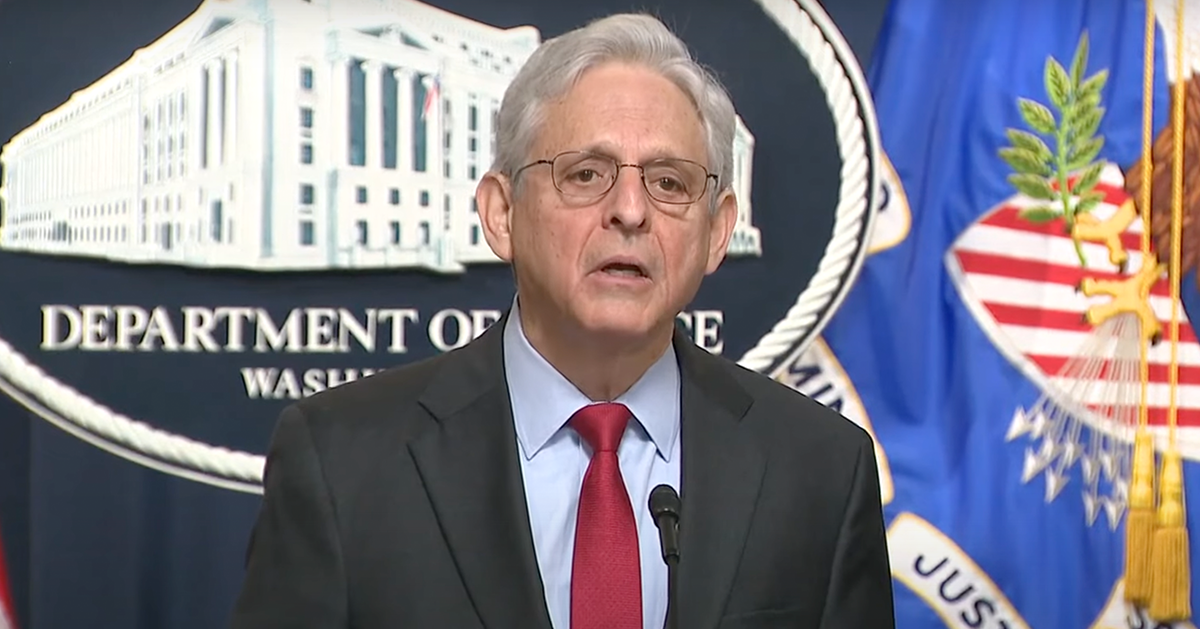Bid To Prevent Re-Evaluation Of Floyd's Autopsy Data
Federal prosecutors are pushing to prevent the reassessment of medical evidence in the George Floyd case.
Federal prosecutors have sought intervention from the U.S. District Court to prevent Derek Chauvin's legal team from re-examining heart and autopsy data linked to George Floyd's death, Mail Online reported.
The legal confrontation intensified after U.S. District Court Judge Paul Magnuson allowed Chauvin's team access to autopsy reports. The decision came against prosecutors' wishes, culminating in their motion filed on Tuesday to block further examination of the autopsy evidence, including Floyd’s heart tissue.
The prosecution’s request follows an email from Dr. William Schaetzel, an unverified source, proposing a theory that Floyd's death might have stemmed from a heart condition rather than asphyxiation from Chauvin's knee. This theory was not pursued vigorously in the initial trial.
Floyd’s Death Rekindles BLM and Leads to Legal Battles
A jury convicted Derek Chauvin, the former police officer, of murdering George Floyd in May 2020, an event that sparked widespread protests and fueled the Black Lives Matter movement. Chauvin knelt on Floyd's neck for over nine minutes during a routine arrest, prompting intense public outrage and judicial backlash.
Prosecutors highlighted the jury’s dismissal of a similar defense previously, stressing it unlikely that introducing Schaetzel’s weaker theory could impact the already decided case. They cited it as speculative and unsupported by substantial evidence during Chauvin’s state trial.
This email-based submission by Chauvin's defense claims his former attorney, Eric Nelson, faltered by not effectively leveraging Schaetzel's opinion. They allege this misstep in his initial trial represents ineffective assistance by Nelson, forming the basis of Chauvin's appeal for a reopening of the autopsy evidence exam.
Legal Expert Opinions and Testimonies Reviewed
The debate involves the testimony of Andrew Baker, the medical examiner. The examiner did consider a paraganglioma in Floyd’s system, concluding it was unrelated to his death, thus opposing Schaetzel’s hypothesis.
The Minnesota prosecutors emphasize that their original decision not to delve deeper into the heart condition was a deliberate trial strategy. They maintain that the evidence presented was robust and speculate that revisiting the same unsuccessfully argued defense should not overturn Chauvin's conviction.
However, some legal experts argue for thoroughness in the appeal process. Commentator David Gelman mentioned to Fox News that despite the controversy, Chauvin deserves to exhaust every legal avenue available to any defendant.
Post-Conviction Developments and Public Reactions
Post conviction, Derek Chauvin faced violence himself, being attacked in prison by John Turscak, who later linked his actions to a symbolic stand for the Black Lives Matter movement, further complicating the public discourse surrounding this high-profile case.
The case remains a focal point of national debate over police practices and racial justice in the United States. With Chauvin now serving a 21-year sentence, the renewed legal challenge over autopsy evidence keeps the legal and societal debates alive regarding the standards of justice and due process.
The ongoing legal proceedings highlight the complexities of the justice system in dealing with high-profile cases. As the court considers the recent motion, observers and legal experts closely watch to see how this decision might influence public trust and the legal landscape regarding police accountability.






